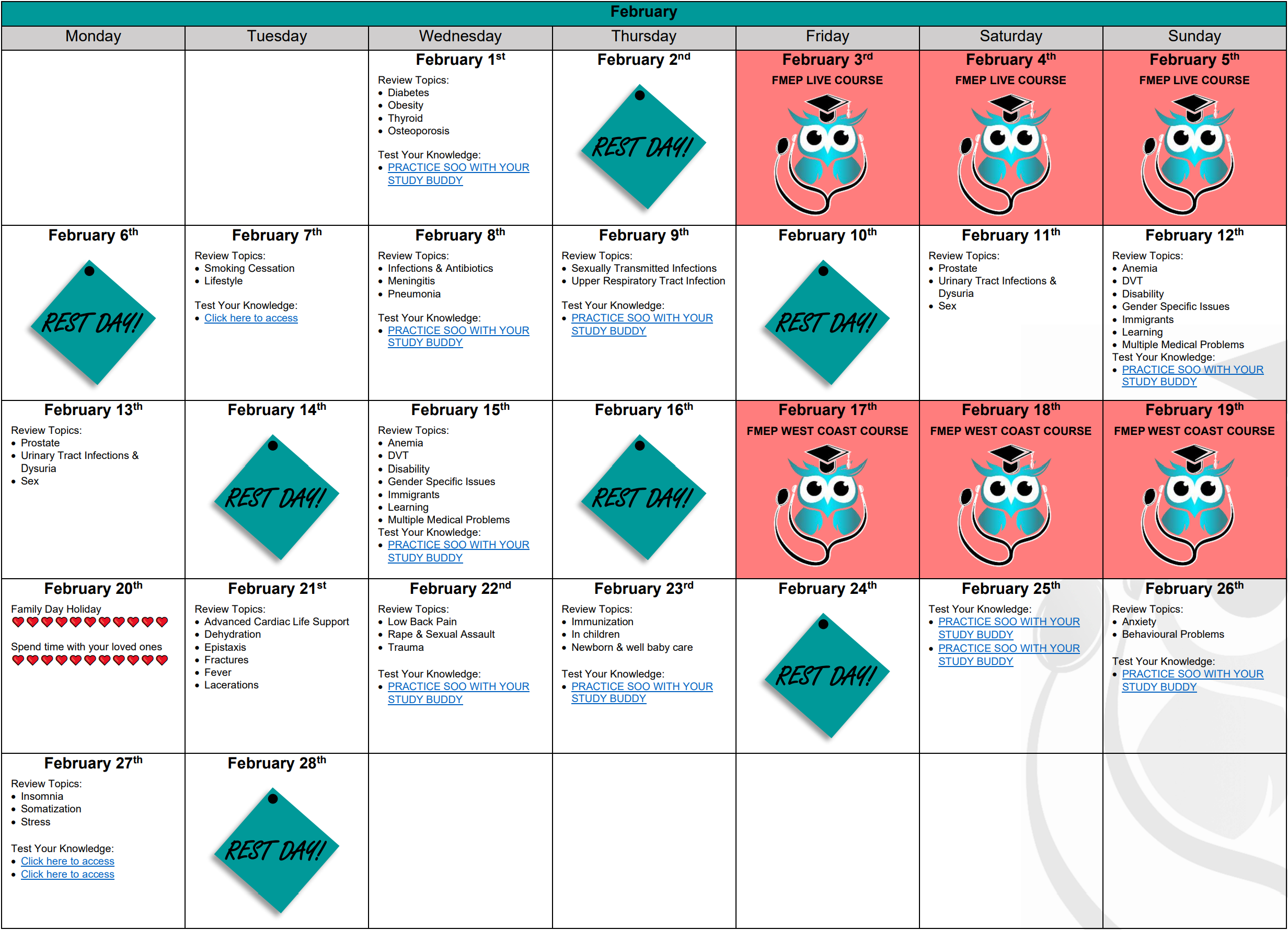by Family Medicine Exam Prep Course |Mar 11, 2023 | Comments Off on IT’S CCFP EXAM CRUNCH TIME! Tips To Help You Prepare… | CCFP | ccfp, ccfp exam, cmaj, fmep, practice, samps, sogc, ssos
It’s crunch time!How to best prepare for the CCFP EXAM.
This is not your first exam, but it may be one of the last in your academic career… so let’s get you prepared to succeed on the CCFP exam. We have received numerous questions from residents for study tips and practical advice on how to arrange their last few weeks before the exam. Let’s review the top 5 tips successful CCFP exam candidates have shared.
1. Know your exam.
2. Have a study plan.
- There are less than two months until the exam so every study day is crucial – don’t waste time!
- There will be topics in the 105 CCFP priority topics list that are your “bread and butter†and do not require intensive review. Instead, focus on the topics that require rote memorization and areas you may find more challenging (for instance, hyperlipidemia guidelines, osteoporosis guidelines, hypertension guidelines, Ottawa ankle rules, C-Spine rules, etc.).
- Write out the topics you find particularly challenging and ensure you cover them in the time you have left. In your study calendar ensure you allocate dates and times when you intend to cover each of the topics that are more challenging for you.
3. Organize your material for review.
4. Include exercise, sleep, and breaks in your study plan.
- There are numerous studies that show enhanced performance on academic testing in those candidates who engage in cardiovascular exercises 30 minutes per day and get at least 6 hours of sleep. For instance, take a look at this article from Harvard: https://www.health.harvard.edu/mind-and-mood/exercise-can-boost-your-memory-and-thinking-skills
- Use the Golden 40:10 rule – for every 40 minutes of studying take a 10-minute break – watch a YouTube video, stretch your legs, and get a cup of coffee or tea. The main point is to give your brain a rest while studying.
5. Practice like it’s the REAL DEAL.
- Especially for the SOO component, do your best to find a partner (a friend, a spouse, or a colleague) and try to practice 1-2 SOOs each study day.
- This should be a mandatory part of your studying. We would wake up in the morning and the two of us would practice over zoom – we used the practice SOOs on the CFPC website and then come up with our own. This would help us get in the habit of interviewing someone in a format that would maximize our success on the exam. Try to use a clear and structured interview style – know when you will ask your FIFE questions, and how you will include the medical history questions, while smoothly integrating this into your conversation. Practice developing concise management plans that you can summarize in less than 3 minutes. Ensure you practice establishing follow-up with the interviewee. The more you practice, the more comfortable you will be on the exam and this will be palpable to the actor and examiner.
Best of luck and remember, we are here for you!
FMEP Course Team









